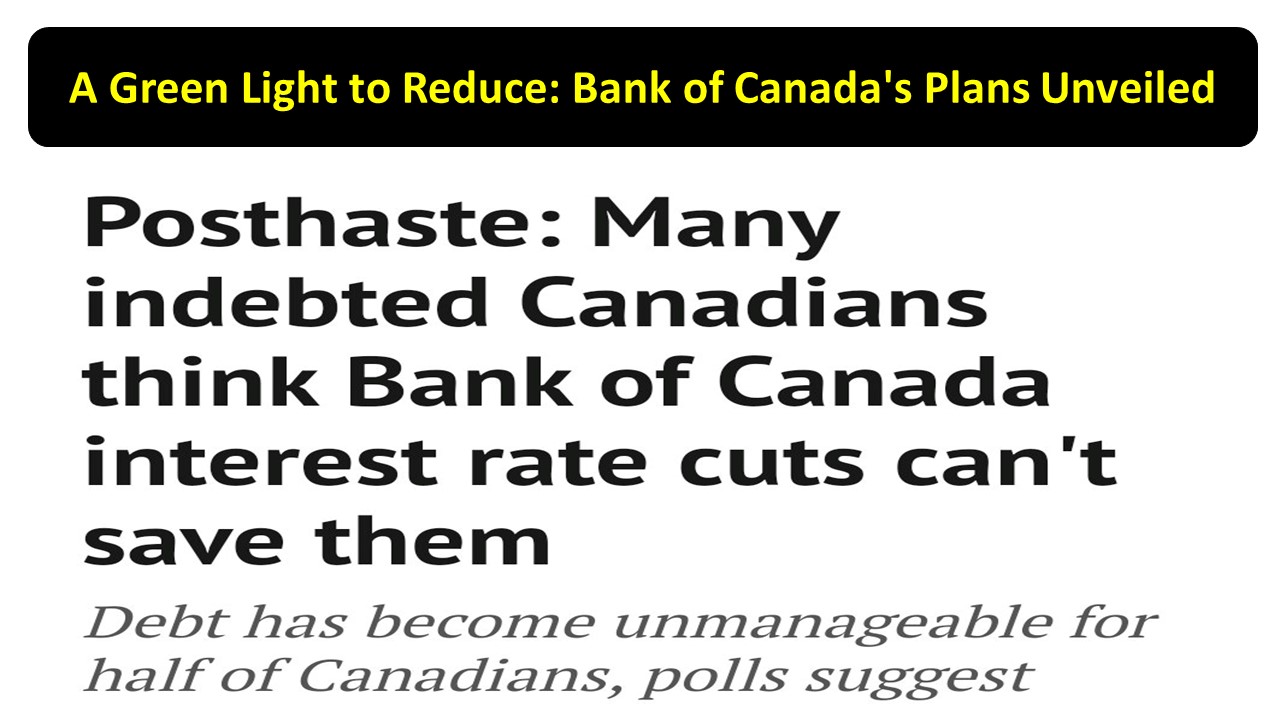The Bank of Canada will announce its next interest rate decision on Wednesday. Many economists and market watchers expect a second consecutive cut in borrowing costs.
This decision is eagerly awaited as new polls show Canadians struggling with debt and hoping for lower interest rates.
As of Monday, market odds were almost certain there would be a 0.25% rate cut, bringing the benchmark rate down to 4.5%.
Last month, the Bank of Canada made its first rate cut in over four years. Tiff Macklem, the head of the central bank, said Canadians could expect gradual rate cuts in the future, with decisions based on careful analysis of economic data.
The latest inflation data from June, released last week, confirmed another rate cut for Wednesday, according to Benjamin Reitzes, managing director of Canadian rates and macro strategy at BMO.
After a slight increase in inflation in May, June’s inflation rate eased to 2.7% annually. Core inflation, closely watched by the Bank of Canada, also showed signs of cooling.
In addition to lower inflation, the Bank of Canada has seen signs of a slowing labor market and retail sales, which Reitzes said should give the central bank confidence to cut rates further.
“That gives the Bank of Canada a big green light to cut this week,” he wrote.
Jeremy Kronick, associate vice-president and director of the Centre on Financial and Monetary Policy at the CD Howe Institute, also expects a rate cut on Wednesday.
He told Global News that while there are still some concerns about inflation—wage growth remains high, and some measures of core inflation are stubborn—the Bank of Canada is likely to see enough signs of a “softening” economy to justify lower interest rates.
“The Bank’s job is to not just look at today but to look at where the economy is going,” he said. “And I think all of it points towards the current policy being restrictive enough to continue to cut rates.”
Two-thirds of Canadians ‘desperately’ need rate cuts: poll
The Bank of Canada’s policy rate broadly affects borrowing costs across the country, including Canadian mortgages.
The latest MNP Consumer Debt Index, released on Monday, shows many Canadians are still worried about their debt despite last month’s rate cut.
The index, based on quarterly polling from Ipsos, dropped to 85 in the second quarter, down six points from the previous quarter. A lower index suggests more negative perceptions about debt.
Two-thirds (66%) of those surveyed said they “desperately need interest rates to go down.”
More than half (56%) said interest rates might not fall quickly enough to provide financial relief, while a similar number (57%) said rates would need to go down “a lot” before their finances would improve.
The poll surveyed about 2,000 Canadian adults online between June 6 and 11, after the Bank of Canada’s initial rate cut.
Kronick says another rate cut on Wednesday would matter most to Canadians with variable mortgage payments that rise and fall with the central bank’s benchmark rate.
For Canadians with a fixed-rate mortgage, many of whom have renewals coming up, Wednesday’s decision might not have as much of a direct impact. Fixed mortgage rates, the most popular option in Canada, are derived from movements in the bond market, which are already pricing in future rate cuts from the central bank.
A rate cut may not be “hugely impactful in the moment” for many Canadian mortgage holders without variable payments, Kronick says.
But whether the central bank delivers cuts at every meeting or alternates with holding rates, Kronick says the easing economy should make it clear that rates will continue to fall.
“Absent a major, major shock, I still would expect that rates are going to continue to fall. Really, the pace is the question,” he says.
